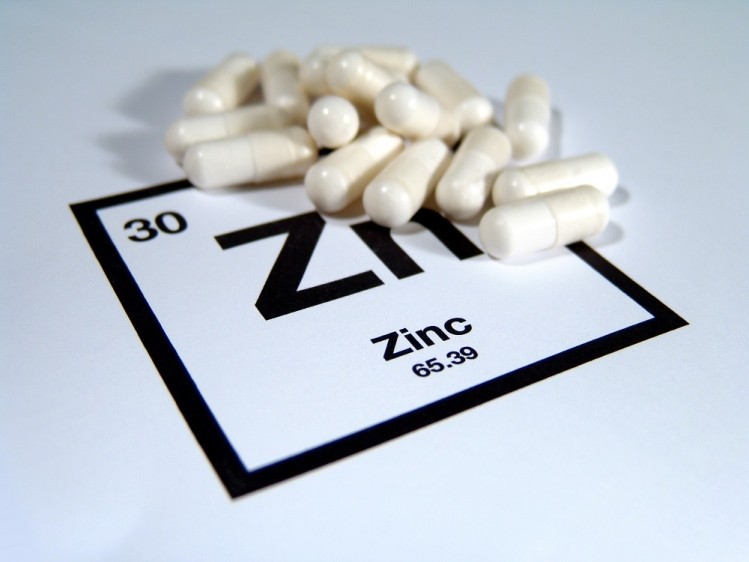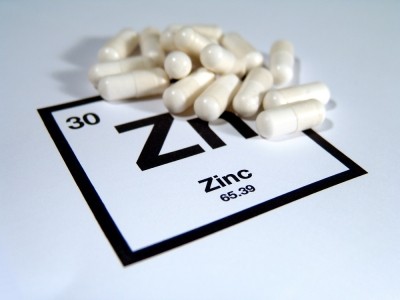Zinc supplements may enhance benefits of a restricted calorie diet

The decreases observed for weight, BMI, waist circumference and hip circumference in obese people following the restricted calorie diet (RCD) were even greater when they also consumed 30 mg of zinc per day, compared to placebo.
Scientists from the Shahid Beheshti University of Medical Sciences and Tabriz University of Medical Sciences in Iran also reported that inflammatory markers, insulin resistance, and appetite were also improved in the zinc group, compared to placebo.
“To our knowledge, this is the first study to evaluate the co-administration of Zn supplement and RCD in individuals with obesity,” they wrote in Diabetology & Metabolic Syndrome.
Study details
The researchers recruited 40 obese people to participate in their study. All participants were put on a restricted calorie diet, with half of the people then given zinc supplements and the other half given placebo.
Results from the 15-week study indicated that participants in the zinc group had insufficient zinc levels at the start of the study (65.2 µg/dL vs the normal range of 70–120 µg/dL). However, at the end of the study mean serum zinc levels had increased to average of 75.4 µg/dL in the zinc group, but no significant changes were measured in the placebo group.
In addition, while both groups experienced improvements in weight, BMI, waist circumference, and hip circumference, the decreases in all of these parameters were significantly greater in the zinc group compared to placebo.
For example, the average body weight loss in the zinc group was 4.6 kg, compared to only 1.5 kg in the placebo group, while the average decrease in BMI of the zinc group was 1.66, compared to only 0.55 in the placebo group.
Despite there being no significant differences between the groups for glucose and insulin, the zinc group displayed significantly greater reductions in HOMA-IR, a measure of insulin resistance, compared to placebo.
The researchers also noted that appetite scores were significantly decreased after 15 weeks of zinc supplementation, while no significant reductions were observed in the placebo group.
“This study indicates that Zn supplementation with a restricted calorie diet has favorable effects in reducing anthropometric measurements, inflammatory markers, insulin resistance and appetite in individuals with obesity, and may play an effective role in the treatment of obesity,” wrote the researchers.
The SOD question
Commenting on the study’s finding, Dr Mark Miller, Chief Innovation Officer for INW (Innovations in Nutrition and Wellness), told use that it is a pity that the researchers did no measure the activity of SOD (superoxide dismutase – an antioxidant enzyme) or SOD gene expression to provide additional mechanistic insight. Zinc is a component of SOD.
“Nevertheless, there are metrics that support actions on suppressing chronic inflammation to complement the clear improvements in insulin responsiveness, body composition and appetite control.
“This should be a heartening result for those that would like to optimize the management of obesity by eliciting weight loss in a healthy manner in a calorie restricted environment,” said Dr Miller.
The SOD issue was examined in another study from Iran published earlier this year in Clinical Biochemistry (Nazem et al, July 2019, Vol 69, Pages 15-20). That study, which included 70 overweight people with type-2 diabetes, revealed that zinc supplementation not only increased both gene expression and enzyme activity of SOD, but was also associated with “meaningful” reductions in HbA1c and HOMA-IR value, plus triglycerides and total cholesterol.
Source: Diabetology & Metabolic Syndrome
11:101. doi: 10.1186/s13098-019-0497-8
“Zinc supplementation improves body weight management, inflammatory biomarkers and insulin resistance in individuals with obesity: a randomized, placebo-controlled, double-blind trial”
Authors: H. Khorsandi, et al.








